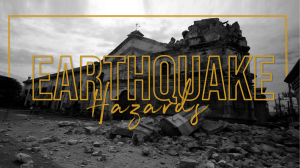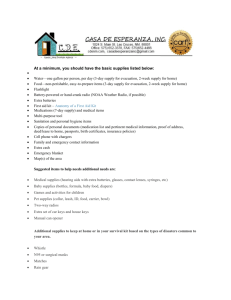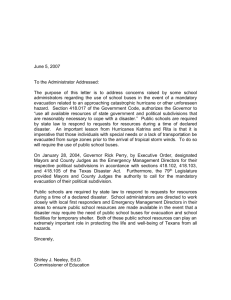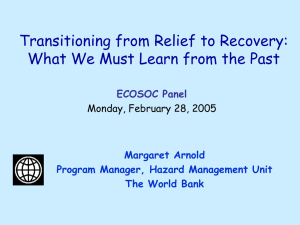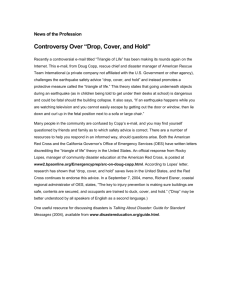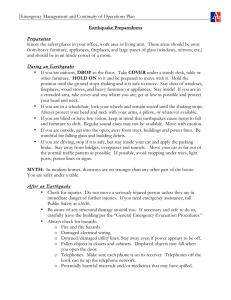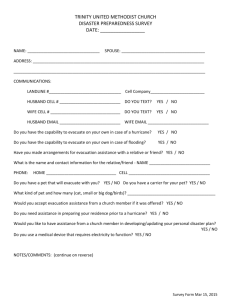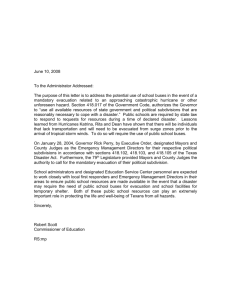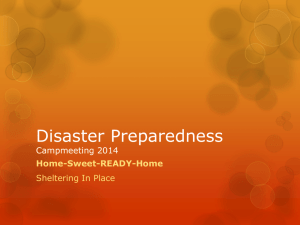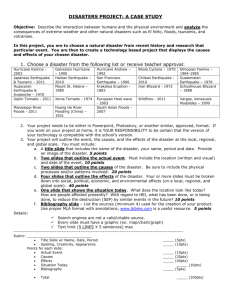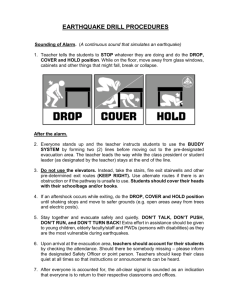Everyday Disaster Prevention Measures
advertisement
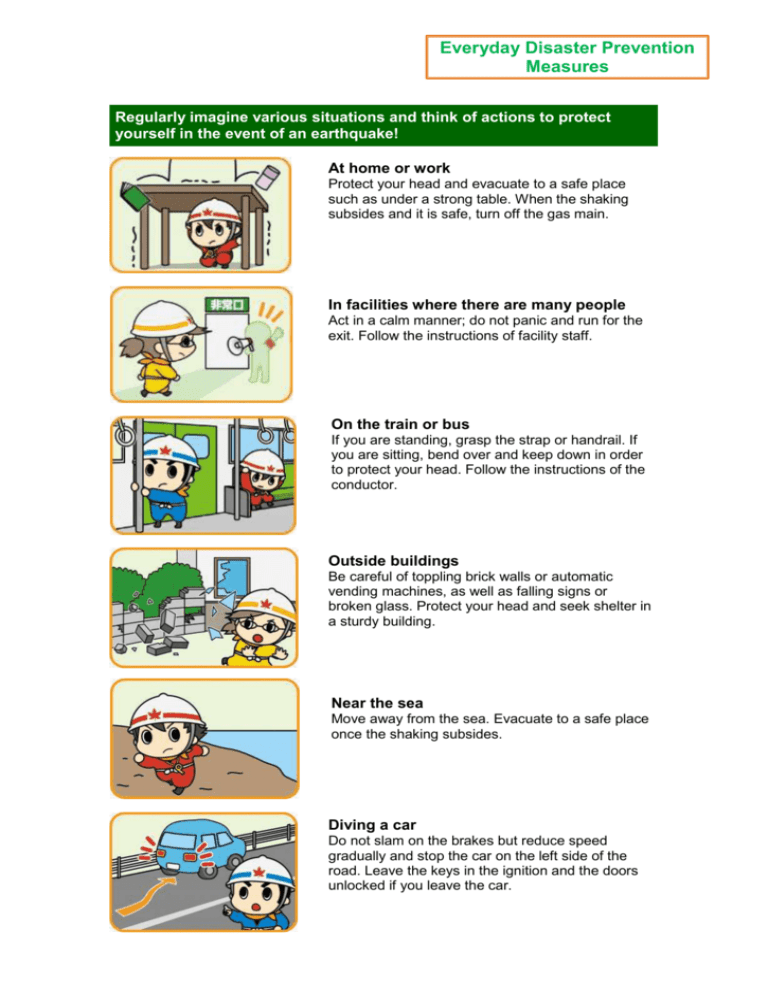
Everyday Disaster Prevention Measures Regularly imagine various situations and think of actions to protect yourself in the event of an earthquake! At home or work Protect your head and evacuate to a safe place such as under a strong table. When the shaking subsides and it is safe, turn off the gas main. In facilities where there are many people Act in a calm manner; do not panic and run for the exit. Follow the instructions of facility staff. On the train or bus If you are standing, grasp the strap or handrail. If you are sitting, bend over and keep down in order to protect your head. Follow the instructions of the conductor. Outside buildings Be careful of toppling brick walls or automatic vending machines, as well as falling signs or broken glass. Protect your head and seek shelter in a sturdy building. Near the sea Move away from the sea. Evacuate to a safe place once the shaking subsides. Diving a car Do not slam on the brakes but reduce speed gradually and stop the car on the left side of the road. Leave the keys in the ignition and the doors unlocked if you leave the car. Everyday Disaster Prevention Measures “Safety Actions 1-2-3”! In the event of a major earthquake, the most important thing is for you to “Protect yourself.” “Safety Actions 1-2-3” are actions for protecting yourself. Prevent furniture from falling over! Talk with family members and workmates about furniture items that could be dangerous in the event of an earthquake (items that “move,” “topple,” “fly,” “fall,” and “break”). Secure furniture that topples over easily using fixings or hooks to prevent them from falling over. Decide Communication Methods! Decide on a method for communication your safety status to family members when it is difficult to get through on the telephone (telephone message service for use in disasters, message boards for use in disasters, etc). Decide on an evacuation site as a family! Everyday Disaster Prevention Measures Check evacuation center locations and safe evacuation routes as a family. Get information that is useful for disaster prevention! Check methods for obtaining disaster prevention information, such as emergency earthquake flash reports, Hiroshima Prefecture’s disaster-prevention website, and disaster prevention information e-mails. Prepare items to take with you in an emergency and store them somewhere they can be easily reached! Pack an Emergency Bag and store it somewhere that can be easily reached. Review the contents twice a year. List of Items to Take with You in a Emergency (Example) Drinking water Shirts/sweaters Tissues Health insurance card Enough food for your family for 3 days Torches Towels Cash First-aid kit Radio Candles Bank passbook Matches Seal Household medicines Spare batteries Underwear/socks Cotton work gloves

